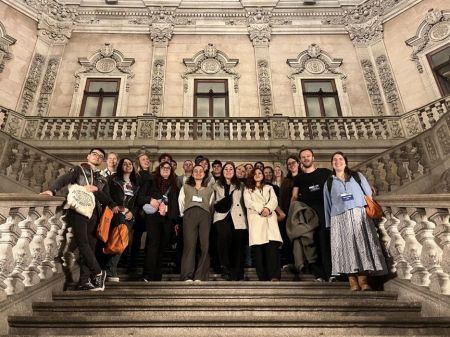We are pleased to share news of a new book relevant to…
Worker co-operatives are confident about the future

In response to global economic issues, worker co-operatives outside of Europe have greater confidence in the future than those within Europe, according to a study.
CICOPA — the ICA's sectoral body for industry, services and crafts, which has a European and Americas sector — surveyed its members outside of Europe to discover the economic situation for their co-op and country.
The study builds upon last year's "The resilience of the cooperative model” report to provide a more in-depth analysis of those worker co-operatives in countries such as USA, China, Argentina, Brazil, South Korea, Japan and Canada. Members reported a more stable or even an improved economic situation in terms of production, sales and employment levels, as compared to the previous years.
It also revealed that the service sector has experienced growth. In the US, more home health care, housekeeping, gardening and technology co-ops have been created, while in Argentina co-ops have emerged in software, communication, audio-visual and consulting services. In South Korea the number of recycling co-ops has increased.
Although, the global economic recession had a severe impact on co-ops in Uganda where inflation has reached high rates (over 30 per cent), which resulted in a large number of closures in the industrial and transport sectors.
Colombia is another country reporting a step backwards in 2011 compared to 2010. ASCOOP and CONFECOOP reported on recent legal measures that have had a negative impact on worker co-operatives, especially those providing services to enterprises. These laws were created in response to a sudden increase of worker co-operatives in Colombia taking advantage of a statute that allowed “false co-operatives” to be formed. These laws, which were aimed at regulating the business and labour market, have reduced the range of activities in which co-operatives have engaged, affecting all of them without any distinction and thus negatively impacting the reputation of the business model.
The report mentioned other problems that co-operatives face, such as credit solvency, liquidity and debt problems. According to the study, co-ops have difficulties in accessing all types of bank loans in Argentina and Colombia, long-term credit in Uganda and short-term credit or cash flow in the USA.
Japanese member JWCU reported that the movement has not reported such difficulties because it is completely self-financed. Meanwhile, in Argentina, FECOOTRA said co-operatives normally suffer from difficulties in accessing bank loans, but the government of the Buenos Aires Province established a specific solidarity fund in order to grant loans to co-operatives.
According to the study, members are optimistic about the future, mainly due to their achievements in the International Year of Co-operatives, which included a new worker co-operative law in Brazil and an increase in worker buy-outs in Argentina.
Members said they would like to see progress in terms of a clear regulation facilitating access to loans, a strengthening of control on “false co-operatives” and unfair enterprises, tax incentives as well as more industry-specific economic support and investments in research and development.
A more in-depth CICOPA Annual Report for 2012, aimed at providing more information on worker, social and artisans’ co-operatives at the world level, will be published in first quarter of 2013.




